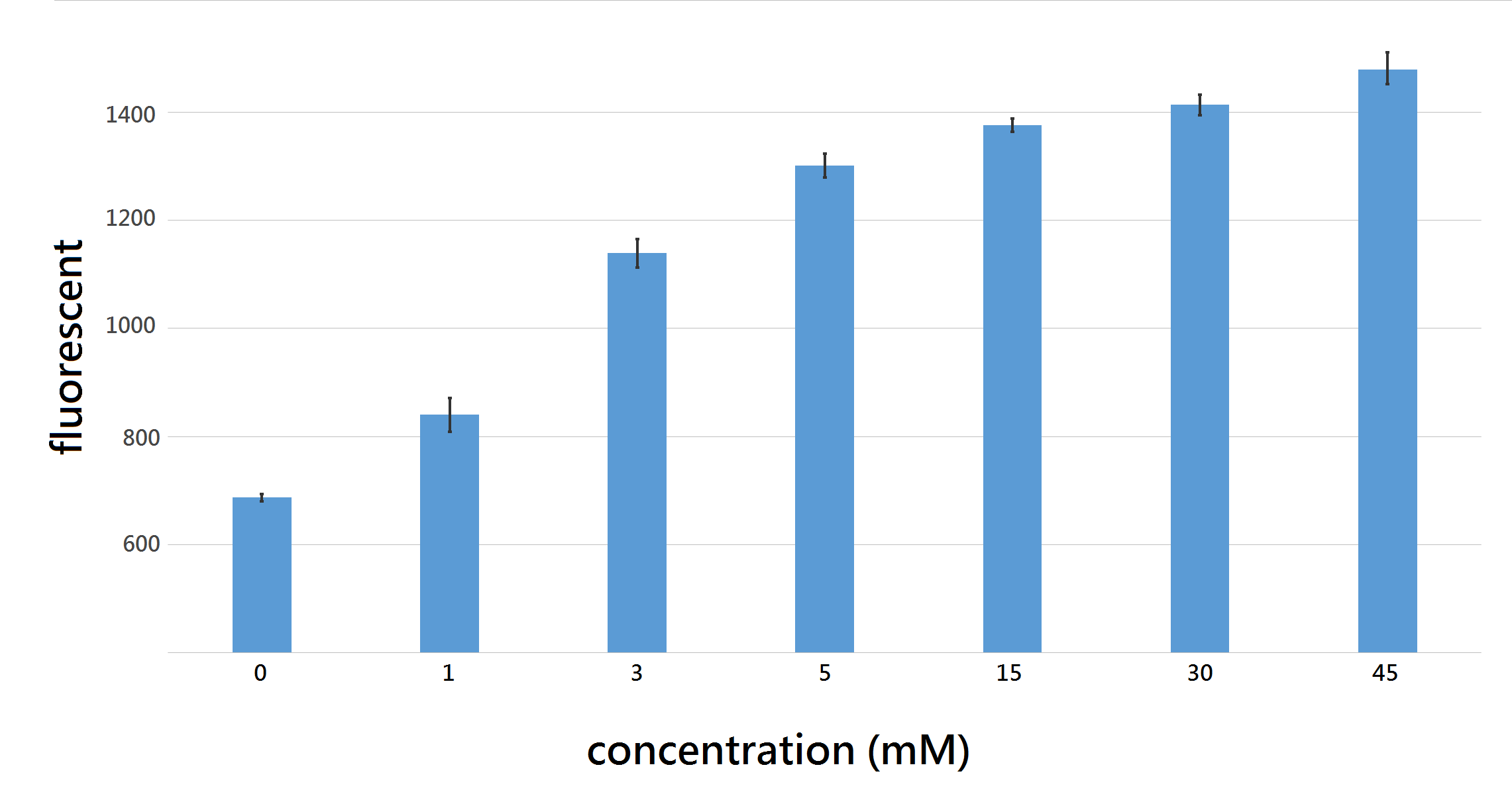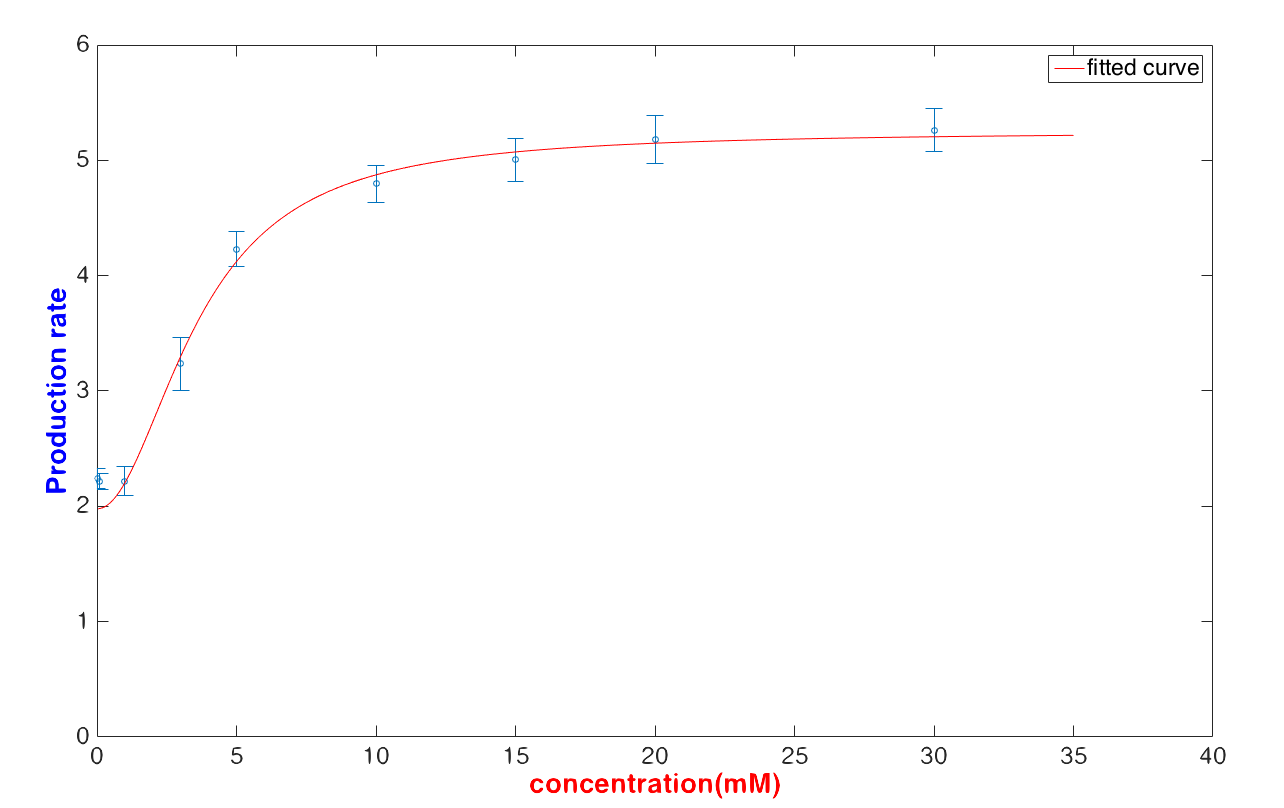One of the main aspects in our project, U-KNOW, is to measure the exact urine glucose concentration through a non-invasive and user-friendly way. By using the fluorescent intensity of glucose-induced RFP, we can exam the urine glucose successfully and precisely.
The degree of fluorescent intensity has shed light on how our device functions. We approached and analyzed it numerically by applying mathematical fitting as well as theoretically by modeling with enzyme kinetics. As a result, we derived a prediction formula that can use fluorescent intensity as an input to generate the value the glucose concentration. To verify the formula, we performed a test to determine whether U-KNOW can quantify the concentration of glucose. The result showed the average recovery rate is 104% (95% ~114%) when compared The theoretical value to the actual value with n=63, the average recovery rate is 104%.
Our goal is to determine the amount of glucose present in urine sample. Thus, we used final glucose concentration of: 0, 1, 3, 5, 15, 30, 45 mM to induce our U. coli for 12 hours in 96 well and measure the fluorescent intensity at excitation/emission wavelength 562 nm / 599 nm, the difference of fluorescent intensity between each group were significant at T (time) = 8hr.

Figure 5: Fluorescence intensity with 95% confidence interval after 8 hour induction with final glucose concentration 0, 1, 3 5, 15, 30, 45 mM, all differences between each group shows statistical significance (P>0.05, student t-test), proving that out U. coli do differentiate urine sample containing various amount of glucose, ranging from 0~45 mM.
Based on the results above, we derived a prediction formula, to calculate the urine glucose concentration.

Figure 6: $$\frac{dY}{dt}=\frac{17.05\times [Glucose]^{1.18}+16.07}{[Glucose]^{1.18}+4.04}$$
To verify the formula, we performed a test to clarify whether our U. coli can predict and quantify the concentration of urine glucose.
Reuslt: with n=63, the average recovery rate is 104% (95% ~114%), which proved that our U. coli do predict and quantify the concentration of urine glucose with good precision.
In conclusion, by applying this prediction formula, it shown that our U. coli could predict and quantify the concentration of urine glucose.

